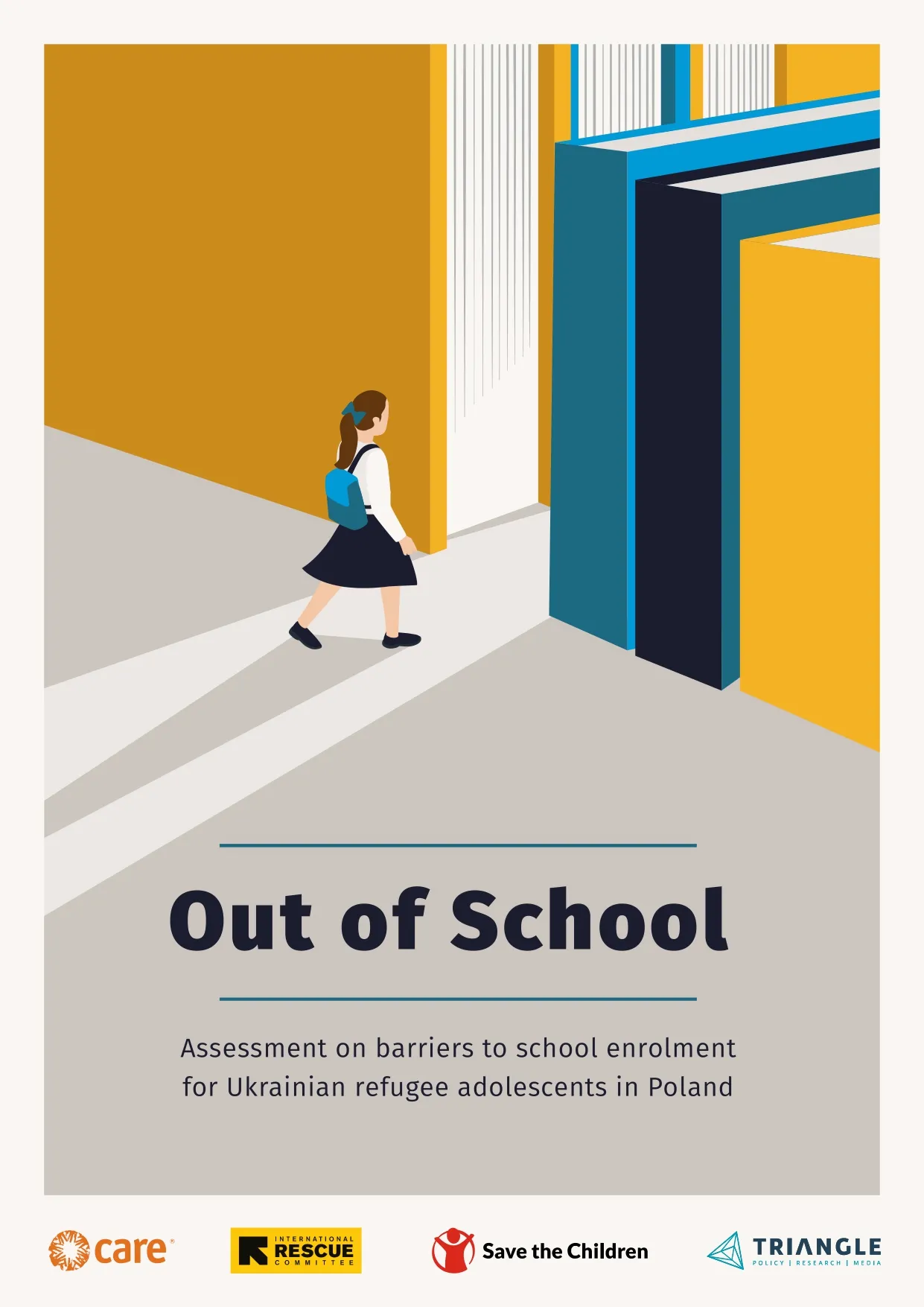About the report
The joint research was conducted by CARE International in Poland, International Rescue Committee, Save the Children International Poland and Triangle to better understand what impacts Ukrainian adolescents’ participation in the Polish school system, since the escalation of the conflict in Ukraine in 2022.
One of the key findings of this study is the absence of mechanisms to monitor the number of refugee and migrant children not attending school. While estimates from various agencies vary, even conservative figures suggest that over 100,000 individuals are not physically attending school but claim to continue their education online following the Ukrainian curriculum.
Although Polish schools welcomed refugee children in March 2022, the education system was unprepared to accommodate the increased number of students and their specific needs. Challenges included language barriers and psycho-social distress related to forced displacement, separation from friends and families, and uncertainty about the future. Over the past two years, Polish schools and civil society organizations have collaborated to address these issues. However, many efforts were shortterm and project-based. It has become evident that systemic change is necessary to meet the educational needs of Ukrainian and other migrant children and youth. As Polish society becomes more diverse due to forced and voluntary migration, both Polish authorities and NGOs must find ways to integrate these children and youth, fostering their development into productive citizens and fulfilled adults in the future.
Download the full report (English)
Download the full report (Polish)

